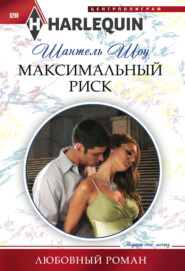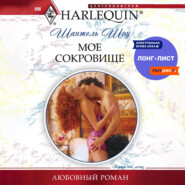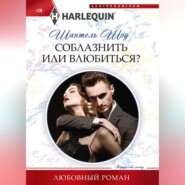По всем вопросам обращайтесь на: info@litportal.ru
(©) 2003-2024.
✖
Rags To Riches: Her Duty To Please: Nanny by Chance / The Nanny Who Saved Christmas / Behind the Castello Doors
Автор
Год написания книги
2019
Настройки чтения
Размер шрифта
Высота строк
Поля
Araminta said that, no, she hadn’t, and almost added that it was most unlikely that she ever would. Seeking a change of subject, she admired a large oak pillow cupboard. She mustn’t allow her interest in the doctor to swamp common sense.
They lunched presently, sitting at a large oak table on rather uncomfortable chairs; it was a cheerful meal, since the children were allowed to join in the conversation. As they rose from the table Mevrouw Nos-Wieringa said, ‘Now, off you go, Marcus, and take Mintie—I may call you Mintie?—with you. We will enjoy having the boys to ourselves for a while, but be back by six o’clock for the evening meal.’
Araminta, taken by surprise, looked at the doctor. He was smiling.
‘Ah, yes, it slipped my memory. The boys and I decided that I should take you to Leeuwarden and give you a glimpse of it…’
When she opened her mouth to argue, he said, ‘No, don’t say you don’t want to come; the boys will be disappointed. It was their idea that you should have a treat on your free day.’
The boys chorused agreement. ‘We knew you’d like to go with Uncle Marcus. He’ll show you the weigh house and the town hall, and there’s a little café by the park where you could have tea.’
In the face of their eager pleasure there was nothing she could say.
‘It sounds marvellous,’ she told them. ‘And what dears you are to have thought of giving me a treat.’
In the car presently, driving along the narrow fields towards Leeuwarden, she said stiffly, ‘This is kind of you, but it’s disrupting your day. You must wish to spend time with your aunt and uncle.’
He glanced at her rather cross face. ‘No, no, Miss Pomfrey, I shall enjoy showing you round. Besides, I can come here as often as I wish, but you are not likely to come to Friesland—Holland—again, are you? What free time you get from hospital you will want to spend at your own home.’
She agreed, at the same time surprised to discover that the prospect of hospital was no longer filling her with happy anticipation. She should never have taken this job, she reflected. It had unsettled her—a foreign country, living in comfort, having to see the doctor each day. She rethought that—he might unsettle her, but she had to admit that he had made life interesting…
She asked suddenly, and then could have bitten out her tongue, ‘Do you mean to marry Mevrouw Lutyns?’ Before he could reply she added, ‘I’m sorry, I can’t think why I asked that. It was just—just an idle thought.’
He appeared unsurprised. ‘Do you think that I should?’ He added pleasantly, ‘Feel free to speak your mind, Miss Pomfrey. I value your opinion.’
This astonished her. ‘Do you? Do you really? Is it because I’m a stranger—a kind of outside observer? Though I don’t suppose you would take any notice of what I say.’
‘Very likely not.’
‘Well, since you ask… Mevrouw Lutyns is very beautiful, and she wears lovely clothes—you know, they don’t look expensive but they are, and they fit. Clothes off the peg have to be taken up or let out or hitched up, and that isn’t the same…’
They were on the outskirts of Leeuwarden, and she watched the prosperous houses on either side of the street. ‘This looks a nice place.’
‘It is. Answer my question, Miss Pomfrey.’
‘Well…’ Why must she always begin with ‘well’? she wondered. Her mother would say it was because she was a poor conversationalist. ‘I think that perhaps you wouldn’t be happy together. I imagine that she has lots of friends and likes going out and dancing and meeting people, and you always have your nose in a book or are going off to some hospital or other.’ She added suddenly, ‘I’m sure I don’t know why you asked me this; it’s none of my business.’ She thought for a moment. ‘You would make a handsome pair.’
The doctor turned a laugh into a cough. ‘I must say that your opinion is refreshing.’
‘Yes, but it isn’t going to make any difference.’
He didn’t answer but drove on into the inner city and parked the car by the weigh house. ‘I should have liked to take you to the Friesian Museum, but if I do there will be no time to see anything of the city. We will go to the Grote Kerk first, and then the Oldehove Tower, and then walk around so that you may see some of the townhouses. They are rather fine…’
He took her from here to there, stopping to point out an interesting house, the canals and bridges, interesting gables, and the town hall. Araminta gazed around, trying to see everything at once, determined to remember it all.
‘Now we will do as the boys suggested and have tea—there is the café. They remember it because it has such a variety of cakes. We had better sample some or they will be disappointed.’
It was a charming place, surrounded by a small lawn and flowerbeds which even in autumn were full of colour. The tea was delicious, pale and weak, with no milk, but she was thirsty and the dish of cakes put before them were rich with cream and chocolate and crystallised fruit. Araminta ate one with a simple pleasure and, pressed to do so, ate another.
The doctor, watching her enjoyment, thought briefly of Christina, who would have refused for fear of adding a few ounces to her slimness. Araminta appeared to have no such fear. She was, he conceded silently, a very nice shape.
‘That was a lovely tea,’ said Araminta, walking back to the car. ‘I’ve had a marvellous afternoon. Thank you very much. And your aunt and uncle have been very kind.’
He made a vague, casual answer, opened the car door for her and got in beside her. When she made some remark about the street they were driving along, he gave a non-commital reply so that she concluded that he didn’t want to talk. Perhaps he felt that he had done his duty and could now revert to his usual manner. So she sat silently until they had reached the house, and then there was no need to be silent, for the boys wanted to know if she had enjoyed herself, what she had thought of Leeuwarden and, above all, what kind of cakes she had had for tea.
She was glad of their chatter, for it filled the hour or so before they sat down to their meal. They had had a wonderful afternoon, she was told. They had fished in the lake with their great-uncle, and gone with their great-aunt to see the kitchen cat with her kittens—and did she know that there were swans on the lake and that they had seen a heron?
She made suitable replies to all this and then sat with Mevrouw Nos-Wieringa and listened to that lady’s gentle flow of talk. There was no need to say anything to the doctor, and really there was no need even to think of that, for he went away with his uncle for a time to look at something in the study, and when they came back they were bidden to the table.
As a concession to the boys, the meal was very similar to an English high tea, and the food had been chosen to please them, finishing with a plate of poffertjes—small balls of choux pastry smothered in fine sugar. Araminta enjoyed them as much as the boys.
They left soon afterwards. The boys eager to come again with their mother and father, the doctor saying that he would spend a weekend with his aunt and uncle when next he came to Holland. Araminta, saying all the right things, wished very much that she would be coming again, too.
The boys were tired by now, and after a few minutes of rather peevish wrangling they dozed off, leaning against Humphrey’s bulk. The doctor drove in silence, this time travelling back via Meppel and Zwolle, Hardewijk and Hilversum, so that Araminta might see as much of Holland as possible.
He told her this in a disinterested manner, so that she felt she shouldn’t bother him with questions. She sat quietly, watching his large capable hands on the wheel, vaguely aware that she was unhappy.
It was dark by the time they reached Utrecht, and she urged the sleepy boys straight up to bed with the promise of hot milk and a biscuit once they were there. They were still peevish, and it took time and patience to settle them. She was offering the milk when the doctor came to say goodnight, and when he added a goodnight to her, she realised that he didn’t expect her to go downstairs again.
She thanked him for her pleasant day in a dampened down voice, since he was obviously impatient to be gone, and when he had, she tucked up the boys and went to her room.
It wasn’t late, and she would have liked a cup of tea or a drink of some sort. There was no reason why she shouldn’t go down to the kitchen and ask for it, but the thought of encountering him while doing so prevented her. She undressed slowly, had a leisurely bath and got into bed. It had been a lovely day—at least, it would have been lovely if the doctor had been friendly.
She fell asleep presently, still feeling unhappy.
The boys woke early in splendid spirits so that breakfast was a lively meal. The doctor joined in their chatter, but beyond an austere good morning he had nothing to say to Araminta.
It’s just as though I’m not here, she reflected, listening to plans being made by the boys to go shopping for presents to take back with them.
‘You must buy presents, too,’ they told Araminta. ‘To take home, you know. We always do. Uncle comes with us so’s he can pay when we’ve chosen.’
‘I expect Miss Pomfrey will prefer to do her shopping without us. Let me see, I believe I can spare an afternoon this week.’
‘Mintie?’ Paul looked anxious.
‘Your uncle is quite right; I’d rather shop by myself. But I promise you I’ll show you what I’ve bought and you can help me wrap everything up.’
Suddenly indignant, she suggested that the boys should go and fetch their schoolbooks, and when they had gone she turned her eyes, sparkling with ill temper, on the doctor.
‘Presumably we are to return to England shortly?’ she enquired in a voice to pulverise a stone. ‘It would be convenient for me if you were to be civil enough to tell me when.’
The doctor put down the letter he was reading. ‘My dear Miss Pomfrey, you must know by now that I’m often uncivil. If I have ruffled your feelings, I am sorry.’ He didn’t look in the least sorry, though, merely amused.
‘We shall return in five days’ time. I have various appointments which I must fulfil but the boys will remain with me until their parents return within the next week or so. I hope that you are agreeable to remain with them until they do? You will, of course, be free to go as soon as their parents are back.’
‘You said that you would arrange for me to start my training…’
‘Indeed I did, and I will do so. You are prepared to start immediately? Frequently a student nurse drops out within a very short time. If that were the case, you would be able to take her place. I will do what I can for you. You are still determined to take up nursing?’

















